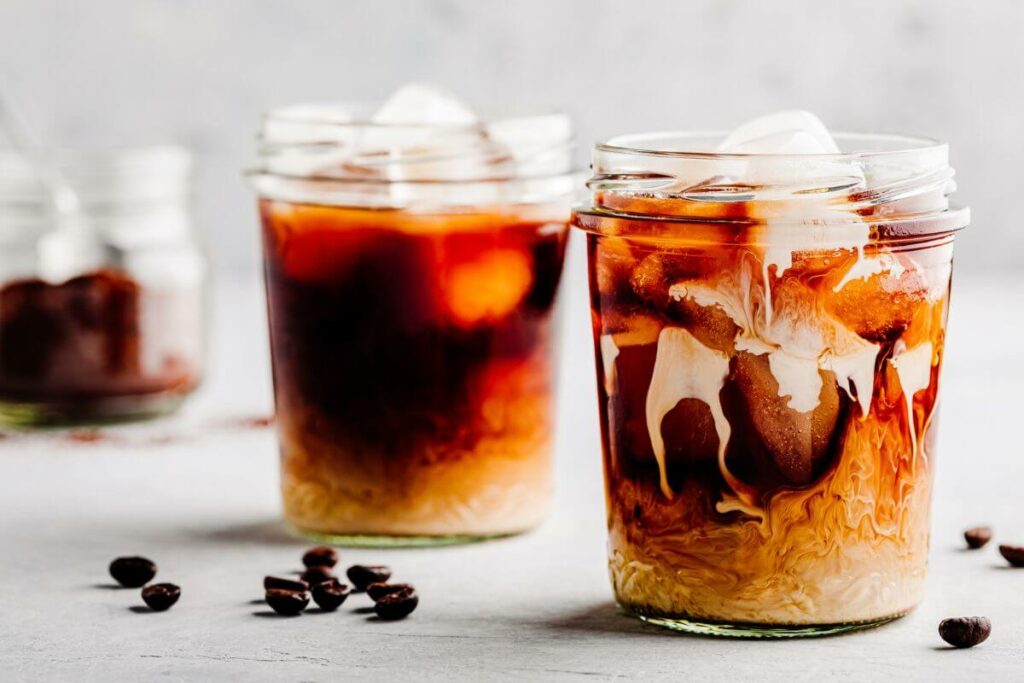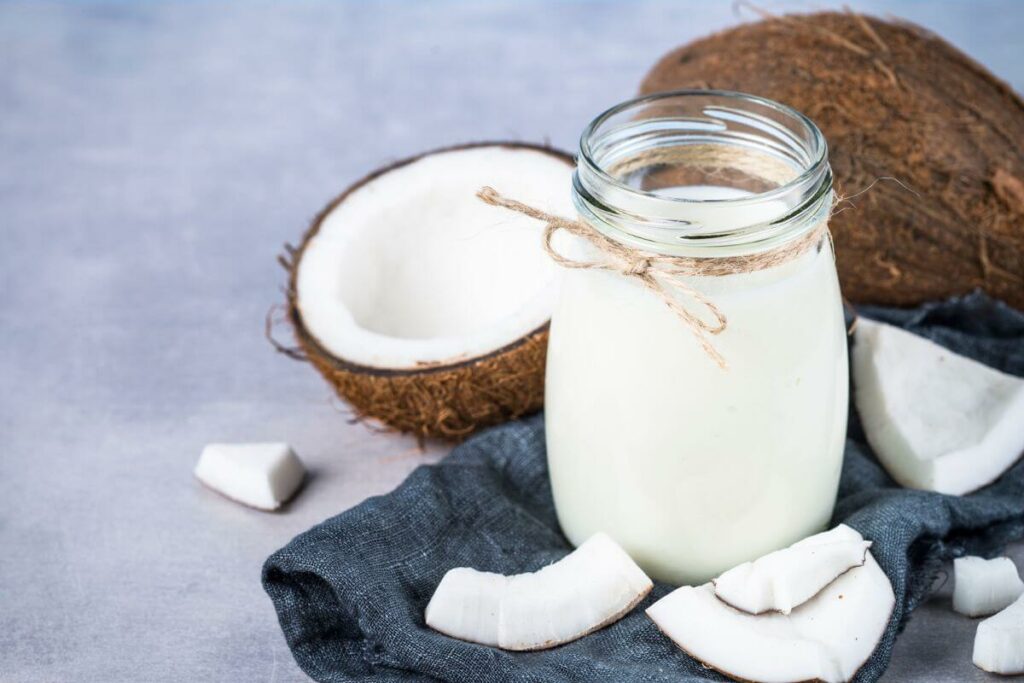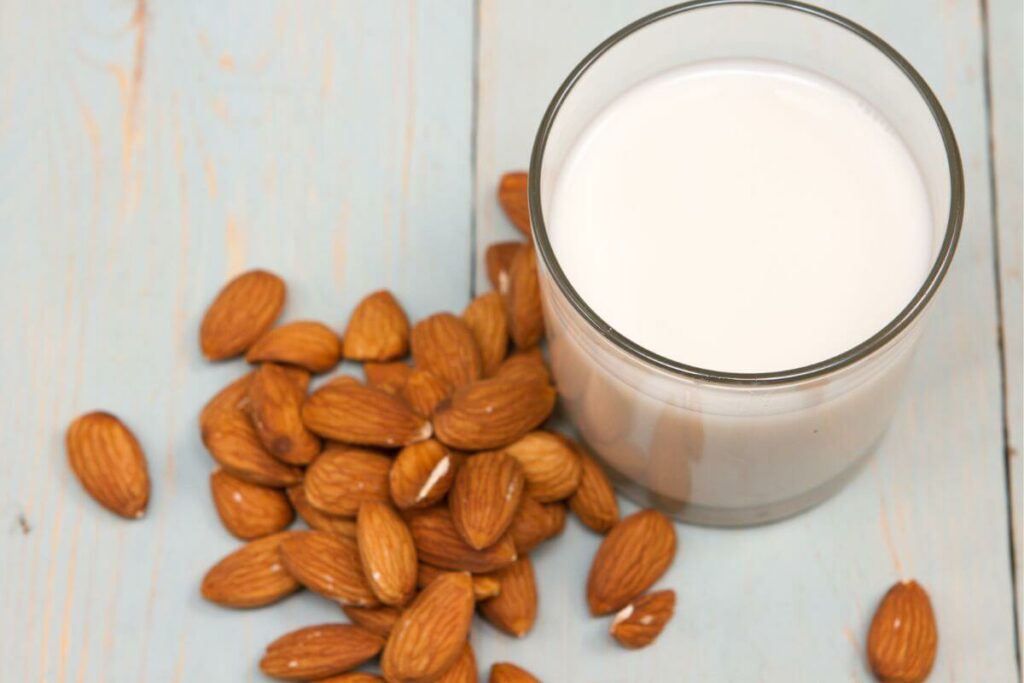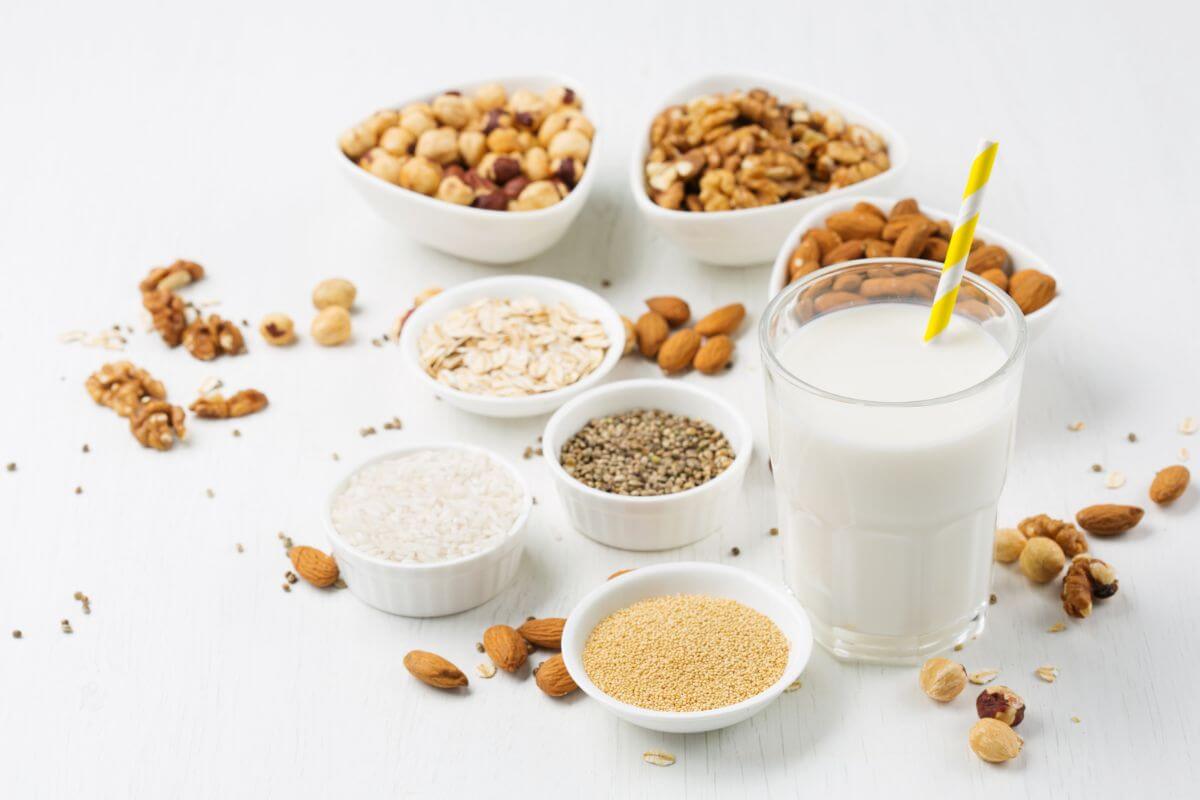If you’ve ever found yourself staring at the cafe menu, wondering about the perfect milk for your coffee, you’ve landed in the right spot. The universe of non-dairy milk alternatives is vast and exciting. Buckle up as we froth it up and explore this milky way!
Each milk alternative has its unique contributions to your coffee drink and nutritional profile. The best milk alternatives for coffee include: oat milk, almond milk, soy milk, coconut milk, rice milk, cashew milk, and hemp milk.

Why Opt for a Milk Alternative?
Before we set off on our creamy journey, let’s ponder why so many people are swapping dairy for plant-based alternatives. First, the environmental impact of dairy farming is a cause for concern. Shifting to plant-based options is a significant stride towards greener pastures.
Second, these vegan milk alternatives come packed with unique flavors and health benefits. Not only do they add an exciting new twist to your daily cup, but they also come with an additional nutritional boost. Intriguing, right?
Criteria for Choosing the Right Milk Alternative for Coffee
To find the champion among vegan milks, we’ve set some ground rules. The ideal alternative should have a pleasant texture (think creamy and froth-able), a flavor that complements coffee rather than overpowering it, and a robust nutritional profile. Sounds like a tall order? Let’s dive right in!

Exploring Popular Vegan Milks
Coconut Milk:
Coconut milk adds a tropical twist to your coffee but might not froth as fluffy due to its lower protein and fat content. Each cup contains roughly 80 calories, <1 gram of protein, 5 grams of fat, and 5 grams of sugar.
Oat Milk:
Our superstar here at The Healthy Oat. Oat milk, is kind to the planet and loaded with nutrients. It has a mild flavor and froths like a dream, making it a favorite for latte lovers. For every cup, oat milk has about 120 calories, 3 grams of protein, 5 grams of fat, and 7 grams of sugar.
Almond Milk:
Almond milk is light on calories but heavy on flavor. It lends a subtle sweetness to your brew, but the froth might not be as robust. Each cup of almond milk contains approximately 60 calories, 1 gram of protein, 2.5 grams of fat, and 7 grams of sugar.
Soy Milk:
Soy milk is the protein powerhouse among plant-based milks. It’s rich and creamy, but its distinctive flavor can be overpowering. A cup of soy milk has around 100 calories, 8 grams of protein, 4 grams of fat, and 11 grams of sugar.
Rice Milk:
Rice milk is a sweet and gentle companion for those with allergies. However, it’s thin and doesn’t froth well. Per cup, rice milk has about 130 calories, <1 gram of protein, 2.5 grams of fat, and 12 grams of sugar.
Cashew Milk:
Cashew milk offers a rich, creamy texture with a subtle nutty flavor and decent frothing capacity. Every cup contains around 130 calories, 4 grams of protein, 10 grams of fat, and 1 gram of sugar.
Hemp Milk:
Hemp milk, the last but definitely not the least on our list, is earthy, nutritious, and froths well. Each cup of hemp milk has approximately 140 calories, 4 grams of protein, 6 grams of fat, and 12 grams of sugar.
Please note that these nutritional facts can vary slightly depending on the brand and whether the product is sweetened or unsweetened.

How to Choose the Right Milk Alternative
Choosing the right milk alternative can be as personal as choosing your favorite coffee blend.
It’s a balance between taste preference, nutritional needs, the type of coffee you’re brewing, and what’s available at your local store. Be adventurous, try out different options until you find your perfect cup companion!
8 Tips for Using Milk Alternatives in Coffee
Venturing into the world of milk alternatives can be an exciting journey, and these handy tips will make your expedition even more rewarding!
- Master the Frothing Technique
The art of frothing non-dairy milk might require a bit more finesse than regular milk. Keep the frother just below the surface of the milk to introduce as much air as possible for a fluffy texture.
Also, keep an eye on the temperature. Most vegan milks froth best at around 140 degrees Fahrenheit (60 degrees Celsius).
- Experiment with Different Types of Coffee
Different milk alternatives pair better with different coffee types. For instance, the creaminess of oat milk and soy milk is a match made in heaven for lattes and cappuccinos. On the other hand, almond and cashew milk might be your go-to for iced coffees due to their subtle, nutty flavor profiles.
- Store Wisely
Store your plant-based milk in a cool and dark place before opening. Once opened, keep it in the fridge and try to use it within a week to enjoy the freshest taste. Some milks may separate in the fridge, but don’t worry. A good shake before use will get it back to normal!
- Heat Carefully
When heating vegan milk, slow and steady wins the race. A gentle heat will help prevent the milk from separating or getting too thick.
- Try Homemade
If you’re up for it, making vegan milk at home can be a fun and cost-effective way to control what goes into your milk. Plus, homemade always has a touch of love! And if you’re wondering what to do will all the mushy oat pulp after you strain out the milk, check out this article!
- Pair with Your Palate
Just like coffee, milk alternatives are diverse in taste. Use your palate as a guide to discover what complements your preferred coffee roast best.
- Eco-conscious Choices
Consider the environmental impact when choosing your milk. Oat milk, for instance, generally uses less water to produce than almond milk.
- Nutritional Needs
Lastly, keep your nutritional needs in mind. If you’re seeking more protein in your diet, soy milk or pea milk may be good options. If you want less sugar, you might opt for unsweetened versions of your favorite milk alternatives.
The adventure doesn’t end here. There’s always room for more discovery and fun when it comes to brewing the perfect cup. Happy brewing!
Final Thoughts
Congrats, you’re now a vegan milk connoisseur! With this newfound knowledge, you’re ready to embark on a journey of delightful discoveries and exciting flavors. Go ahead, froth up some goodness, and pour yourself the perfect cup!
Recent Posts
Oat Milk Latte (Calories, How To Make At Home, & More Oat Coffee Drinks!)
Are you seeking a creamy, delicious dairy-free coffee drink that won't break your calorie bank? Look no further than the oat milk latte! Oat milk is becoming increasingly popular among...

